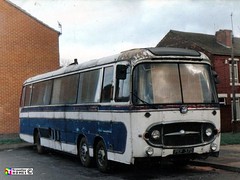
By John Allen
Casey Key is an 8 mile barrier island located about 25 minutes south of downtown Sarasota, FL. The island stretches from Sarasota Bay to the beautiful azure waters of the Gulf of Mexico and is only 300 yards wide in some spots. Casey Key provides the ultimate environment for those seeking relaxation, beauty, luxury and privacy.
Casey Key is accessible by two bridges. The north bridge is one the oldest swinging drawbridges in the United States. There’s is often a short wait as the bridge swings open to let fishing boats, yachts and sailboats pass.
On the West side of Casey Key are the open waters of the Gulf of Mexico and on the East side of the Key is Little Sarasota Bay. In 1849, the island was called Chaise’s Key and was later renamed Casey Key in 1856. During Florida’s land boom of the 1920s, Casey Key was called Treasure Island for a short time.
Real Estate
Casey Key offers a wide range of real estate options, from simple to extravagant. There is a mix of estate homes, small Florida bungalows, beach cottages, and even cabanas. However, there are no condominiums or high-rises on the island. Unlike other barrier islands, Casey Key is comprised almost entirely of single family homes.
[youtube]http://www.youtube.com/watch?v=0CnQZiVrY98[/youtube]
Casey Key homes are located on either side of Casey Key Road, the islands main drag. Waterfront options include direct Gulf-front, bayfront and sprawling Gulf to Bay estates. Home prices on Casey Key start at over one million.
In peak season, tourists often travel to the Casey Key area just to view the impressive walled estates. Many of the estate homes are behind scrolled wrought iron gates. Palm trees, hibiscus, magnolias, oaks trees draped with Spanish moss are abundant and complete this island’s tropical charm. The beaches and Gulf sunsets are spectacular here!
Activities
There is almost no public beach access on Casey Key. At the South end of Casey Key, visitors congregate at the Jetties to gain access to the public beach area. You can grab a hotdog, have a picnic, walk out to the beach and collect a few sharks’ teeth or relax take in the Florida sights.
Restaurants such as Casey Key Fish House are popular hangouts for the locals on Casey Key and can be reached by car or boat. Doggies are welcome at Casey Key Fish House on the outside deck and often an egret will stop by for a visit at your table. Diners enjoy groupers sandwiches and calamari while watching boats docking at the marina. A variety of Mainland restaurants and shopping are only a short drive away.
A Private Lifestyle
Following other authors who were mesmerized by the tranquil and private lifestyle of some of South Florida’s prime real estate, Stephen King was drawn to Casey Key, Florida. King purchased a homestead on the north end of the island about 10 years ago. The ultra wealthy and famous residents favor Casey Key because of it’s the seclusion and privacy. Casey Key is truly a tropical paradise for the rich and famous.
If you’re planning to visit Casey Key, there are a few small motel/hotels on the Key or by contacting a rental company; you can schedule an extended vacation in one of Casey Key’s beach cottages. Casey Key has little traffic, no traffic lights at all, but watch out of the walkers and bikers!
For those who can afford to live on Casey Key, the private atmosphere of this barrier island is unmatched. The small number of residents, private beaches and seclusion make Casey Key Florida a true island paradise.
About the Author: John Allen represents buyers and sellers of fine Sarasota real estate including luxury and waterfront homes. For more information on Casey Key, visit John’s comprehensive Casey Key FL real estate section ( http://www.buysarasota.com/casey-key-real-estate.html ) where you can view all current listings for sale.
Source: isnare.com
Permanent Link: isnare.com/?aid=381942&ca=Travel



